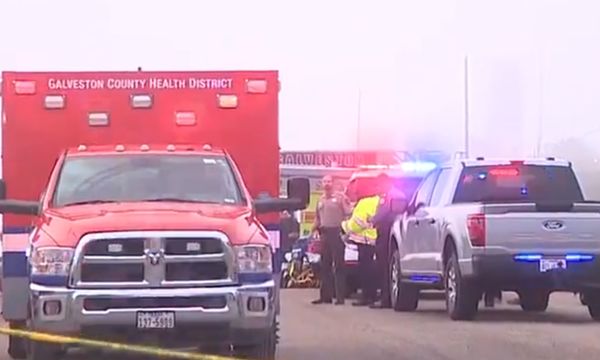The results of a new study led by David Ison have determined that passengers are willing to pay more to commute and use electric vertical takeoff and landing (eVTOL) aircraft if the amount of time saved is significant.

What Do The Results of This New Study Suggest?
Researcher David Ison, PhD at the Washington State Department of Transportation (WSDOT), conducted the study. He found that out of the 1,622 people who participated in the survey, 71.9% of those respondents were willing to pay a premium price to fly on an eVTOL to save time instead of ridesharing services.
The demographic most likely to use eVTOL ridesharing flights are young, urban consumers willing to pay more for these flights. When asked how much they would be willing to pay for an eVTOL flight, respondents expected to pay a median price of anywhere between $150, which was considered a “bargain” or “great buy,” and $195 to $200, which was the threshold at which respondents would consider an eVTOL rideshare flight to be too expensive.

This willingness of respondents to pay a premium for a time-saving flight reflected an extra $1.39 to $1.66 per mile that passengers would be willing to pay to use eVTOL services. The study also found that eVTOL flights would need to save 62% or more of their time over cars for commuting. This amount of time saved plus more will make people willing to pay around $50 more for a 15-minute trip on an eVTOL if driving is considerably slower.
A Promising Future for the Use eVTOLs
The future of a new industry with opportunity and potential is actively being laid out and pursued by companies such as Lilium and Archer Aviation. Electric vertical takeoff and landing (eVTOL) aircraft promise to fulfill various uses currently being fulfilled by cars, trucks, and drones. eVTOLs can replace ridesharing apps due to their convenience and time-saving nature while not contributing to carbon emissions and being able to fly remotely. Examples of such aircraft already exist, such as the CityAirbus NextGen.

Medevac flights currently operated by large, cumbersome helicopters with two pilots and multiple EMT personnel could be replaced with eVTOL aircraft that have the same, if not better, mobility and require less crew. Another possible and extremely beneficial use of these aircraft in the medical field could be to act as delivery vehicles or drones delivering vital medical supplies across congested cities.
Medical deliveries such as blood and plasma donations could take place, as well as organ deliveries for transplants to other nearby hospitals that need them. Similarly, eVTOLs could deliver other time-sensitive cargo that is too large or fragile to be transported on land in a car or truck. Dating and rideshare companies could rent eVTOLs for couples on dates.
The Runway is Obsolete: Jekta Swiss is Resurrecting the Flying Boat for the 21st Century » Should Students Have Homework? Better After-School Balance » Air France Suspends Paris-Manila Service for Summer 2026 »
Comments (1)
 jesse pony naked
Watch videos from the guy's perspective to feel just
like you're right in the center of the action and get a good view!
You can get big booties in virtually any other category
you can think about! Whether you're into curvy teenagers,
sexy MILFs, or thick Asians, they all have an area here.
Browse the bouncing, backshots, and incredible action in group sex, gangbangs, anal, one-on-one, and many more. https://bikini-blogrftg581470.bcbloggers.com/28199049/what-everybody-must-find-out-about-how-to-take-nudes
jesse pony naked
Watch videos from the guy's perspective to feel just
like you're right in the center of the action and get a good view!
You can get big booties in virtually any other category
you can think about! Whether you're into curvy teenagers,
sexy MILFs, or thick Asians, they all have an area here.
Browse the bouncing, backshots, and incredible action in group sex, gangbangs, anal, one-on-one, and many more. https://bikini-blogrftg581470.bcbloggers.com/28199049/what-everybody-must-find-out-about-how-to-take-nudes
Add Your Comment
SHARE
TAGS
NEWS Advanced Air Mobility AAM eVTOL Future Innovation Technology Electric Aircraft Research SustainabilityRECENTLY PUBLISHED
 Mexican Medical Plane Crashes in Galveston Bay During Rescue Mission
Search and rescue operations are continuing into the evening in West Galveston Bay following the crash of a Mexican military medical flight. The Beech King Air 350, which was carrying eight people (two pilots and six passengers), went down around 3:15 p.m. on Monday as it approached Scholes International Airport.
NEWS
READ MORE »
Mexican Medical Plane Crashes in Galveston Bay During Rescue Mission
Search and rescue operations are continuing into the evening in West Galveston Bay following the crash of a Mexican military medical flight. The Beech King Air 350, which was carrying eight people (two pilots and six passengers), went down around 3:15 p.m. on Monday as it approached Scholes International Airport.
NEWS
READ MORE »
 Direct Minsk-New York Flights? Belavia Weighs Transatlantic Return for 2026
Following a series of diplomatic breakthroughs in late 2025, Belavia, Belarusian Airlines, is officially exploring the feasibility of a direct link between Minsk National Airport (MSQ) and New York's John F. Kennedy International Airport (JFK).
ROUTES
READ MORE »
Direct Minsk-New York Flights? Belavia Weighs Transatlantic Return for 2026
Following a series of diplomatic breakthroughs in late 2025, Belavia, Belarusian Airlines, is officially exploring the feasibility of a direct link between Minsk National Airport (MSQ) and New York's John F. Kennedy International Airport (JFK).
ROUTES
READ MORE »
 Air France Suspends Paris-Manila Service for Summer 2026
Air France has announced a significant adjustment to its Southeast Asian network, confirming that its direct service between Paris Charles de Gaulle (CDG) and Manila (MNL) will transition from year-round to seasonal operation starting in 2026.
ROUTES
READ MORE »
Air France Suspends Paris-Manila Service for Summer 2026
Air France has announced a significant adjustment to its Southeast Asian network, confirming that its direct service between Paris Charles de Gaulle (CDG) and Manila (MNL) will transition from year-round to seasonal operation starting in 2026.
ROUTES
READ MORE »



